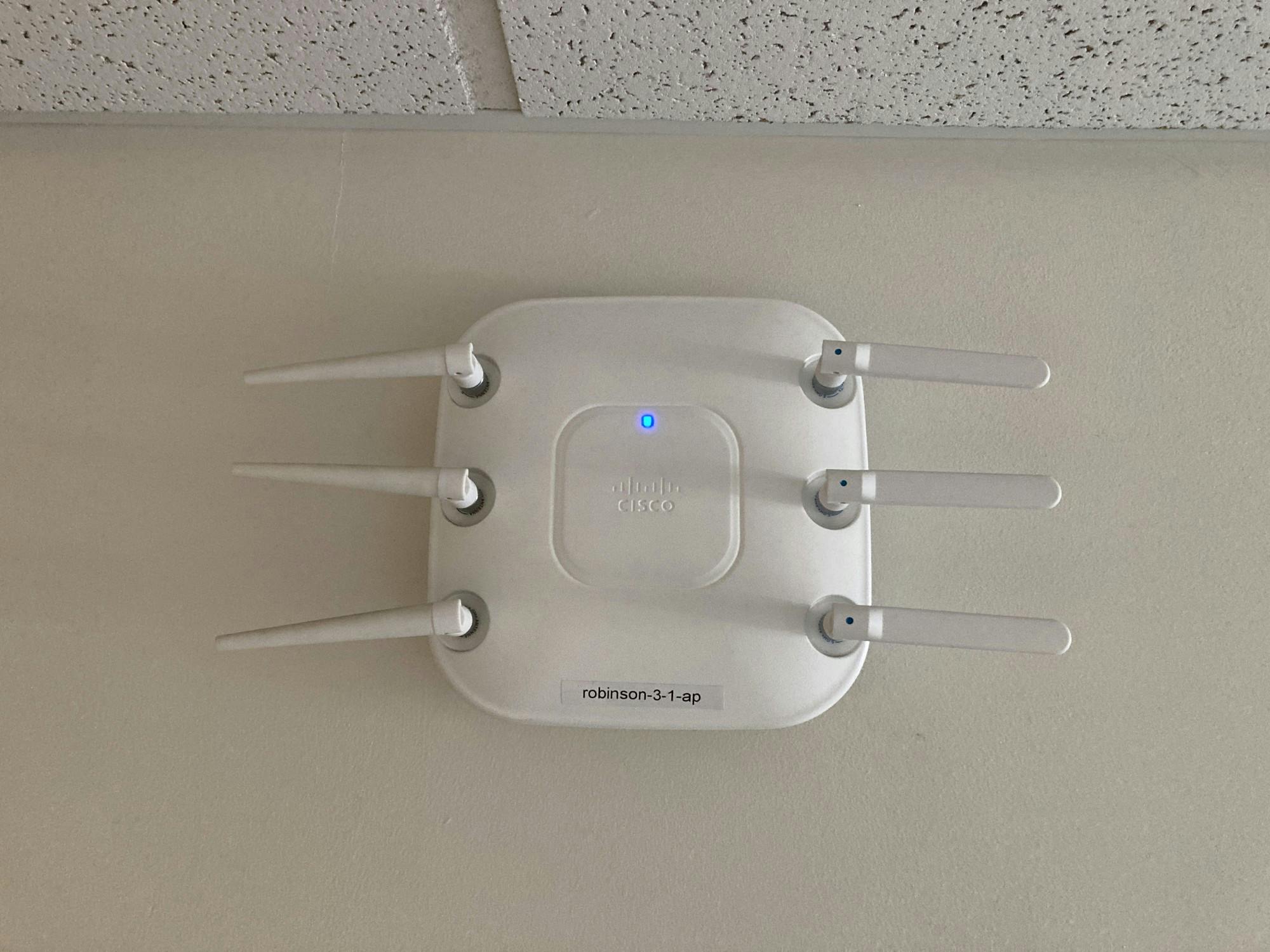Loading screens, buffering videos and drops in internet quality may be no more on campus. According to Dartmouth Information, Technology & Consulting, recent upgrades to the Wi-Fi network have improved internet connectivity and speed in Berry library, dorms and other spaces around campus.
The College’s upgrades to on-campus Wi-Fi — both for eduroam and public networks like Dartmouth Public and Dartmouth Library — are about 85% complete, according to network senior service director Felix Windt. Windt added that of the 3500 “legacy” 2.4 GHz access points around campus — which perform the same function as a router does in a typical home — all but 700 of them have been replaced with new 5 GHz APs. He also mentioned that ITC has installed approximately 7000 new APs since 2019.
While many of the buildings on campus have received their upgrades, Windt noted that some buildings that students frequently use have not yet been updated. For example, he mentioned that Baker library has not yet been upgraded due to asbestos issues and a $600,000 quote for new wiring needed for the building. Windt also said that ITC is delaying upgrades in Baker until other less expensive buildings on campus can be upgraded first.
“We first prioritized upgrading dorms because many students took virtual classes in their dorms,” Windt said. “We then turned to upgrading academic and student life buildings, saving administrative and athletic areas for last.”
According to Windt, upgrading from the 2.4 GHz to the 5 GHz APs has the benefit of allowing for faster connections and for more devices to connect at a given time. However, because the radio waves emitted by the 5 GHz APs are at higher frequencies, signals cannot travel quite as far, so new APs have to be placed closer together.
ITC president Mitch Davis said that in addition to upgrading the Wi-Fi network itself to raise internet speeds, ITC has also been able to improve connectivity to the network. He mentioned that these upgrades included “all new” wiring on network switches, which allow more devices to connect to a network at any one given time.
“As we plug in the Wi-Fi, we’re also creating a new network to provide the connectivity that wasn’t there in the past,” Davis said.
Some of the network upgrades have involved a transition away from wired connections to wireless connections. According to Davis, wireless connectivity is a “necessity” for people on campus to do their work, and as a result ITC has emphasized using wireless APs over wired connections in its upgrade process.
Both Davis and Windt agreed that feedback from the Wi-Fi upgrades has been largely positive, and that they have not heard of any areas that have persistent connectivity issues.
“We’re constantly getting feedback from professional schools like [the Thayer School of Engineering] and [the Tuck School of Business] that Wi-Fi speeds and connectivity have significantly improved,” Windt said. “We think that feedback from other parts of campus is also positive.”
Davis added that he would like to create a mechanism where students can report any network troubles they are having.
“We have an AI that analyzes all the data and lets us know where there’s a hiccup, but it would be better to have direct user experience feedback,” Davis said. “What we find sometimes is that connectivity problems are due to the computer, not the network, and with user feedback we can help troubleshoot those kinds of problems more quickly.”
Anthony Lenkiewicz ’22 said that he is “decently satisfied” with the Wi-Fi situation on campus. He noted that while he has had to “occasionally” switch to a public network, it has usually been “pretty reliable” for him.
“In buildings with thick walls like basements it’s a bit harder to connect to Wi-Fi,” Lenkiewicz said. “Overall, however, it’s not that big of an issue.”
Dakota Ma ’22 said that while eduroam is more reliable, her computer will sometimes automatically connect Dartmouth Public first, which she noted was “slower” and “harder to use.” However, she added that her connection has “largely been fine.”
“Eduroam doesn’t really work as well outside, but in dorms or in the library and in classes it works fine,” Ma said. “There’s occasional patches where the internet might be down, but the speed is decent most of the time.”
Lorraine Liu contributed reporting.




